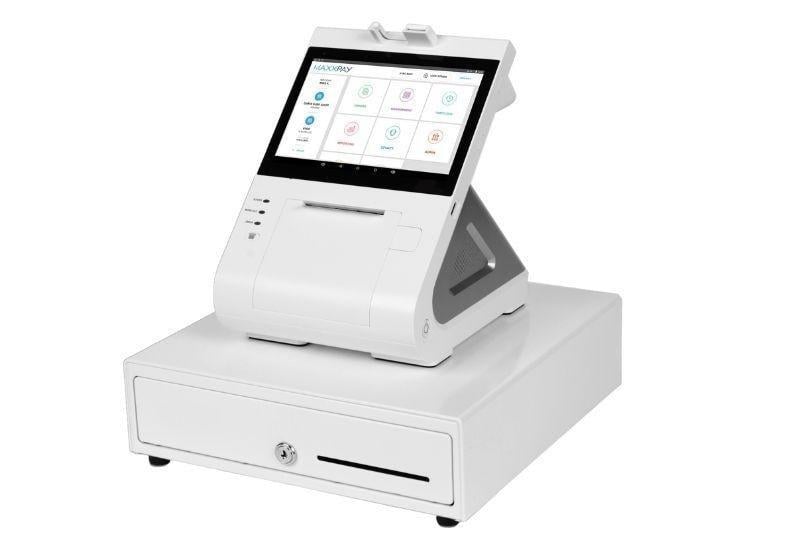
If you’re a retail merchant in Detroit looking to take your business to the next level, then it’s time to consider optimizing your operations with retail point of sale systems. These powerful tools can revolutionize the way you run your business and help you increase efficiency, streamline processes, and enhance customer experiences. In this article, we’ll explore the various benefits of utilizing retail point of sale systems and how they can transform your Detroit retail business into a thriving success. So, let’s take a closer look at why these systems are a game-changer for merchants in Detroit!
Benefits of Retail Point of Sale Systems
Increased Efficiency and Productivity
A retail point of sale (POS) system can significantly increase the efficiency and productivity of your Detroit store. With a POS system, you can automate many of the manual processes involved in running a retail business, such as inventory management, sales tracking, and employee management. By streamlining these tasks and reducing the amount of time spent on administrative work, you and your staff can focus more on providing excellent customer service and growing your business.
Streamlined Inventory Management
One of the most significant benefits of a retail POS system is its ability to streamline inventory management. With a POS system, you can easily track and manage your inventory in real-time. This means that you always know which products are in stock and which ones are running low. You can set up automatic reordering alerts, so you never run out of popular items. Additionally, a POS system can help you track sales trends and analyze data to make informed purchasing decisions.
Accurate Sales Tracking
Accurate sales tracking is crucial for any retail business, and a POS system can provide you with the tools you need to monitor and track sales efficiently. With a POS system, you can easily generate reports that show you sales data by day, week, month, or any other time frame. This data can help you identify trends, understand customer purchasing behavior, and make data-driven decisions to optimize your business strategy. By having precise sales tracking, you can also ensure that your financial records are accurate, making tax season less of a headache.
Improved Customer Experience
A retail POS system can help improve the overall customer experience in your Detroit store. With a streamlined checkout process, customers can complete their purchases quickly and efficiently, reducing wait times and increasing customer satisfaction. A POS system can also enable you to offer personalized promotions, discounts, and loyalty programs to your customers, enhancing their shopping experience and fostering customer loyalty. By providing a smooth and personalized experience, you can keep customers coming back to your store and increase your sales.
Choosing the Right Retail Point of Sale System
Assessing Your Business Needs
When choosing a retail POS system for your Detroit store, it’s essential to assess your business needs thoroughly. Consider the size of your store, the number of employees, and the type of products you sell. Think about the specific features and functionalities that would benefit your business the most. For example, if you have a large inventory, you may need a system with robust inventory management capabilities. By understanding your business needs, you can choose a POS system that aligns with your requirements and helps you achieve your goals.
Considering Ease of Use
Another crucial factor to consider when choosing a retail POS system is its ease of use. You and your staff will be using the POS system daily, so it’s important that it is intuitive and user-friendly. Look for a system with a clean and organized user interface, easy navigation, and straightforward functionalities. It’s also beneficial to choose a POS system that offers comprehensive training and support, ensuring that you and your staff can quickly learn how to use it effectively.
Evaluating Integration Capabilities
Integration capabilities are another critical factor to consider when choosing a retail POS system. You may already be using other software solutions in your business, such as accounting or e-commerce platforms. It’s important to choose a POS system that can integrate seamlessly with these existing systems. This will enable you to centralize your data and streamline your operations. Additionally, consider the possibility of future integrations. As your business grows, you may need to add new software solutions, so select a POS system that offers flexibility in terms of integration options.
Analyzing Cost and Pricing
Last but not least, analyzing the cost and pricing of different retail POS systems is essential when making your decision. Consider both the upfront costs and ongoing fees associated with the POS system. Some POS systems require a one-time purchase, while others have a monthly subscription fee. Take into account your budget and the value you expect to receive from the system. Remember that investing in a quality POS system is an investment in the long-term success of your business, so prioritize value and features over solely focusing on cost.
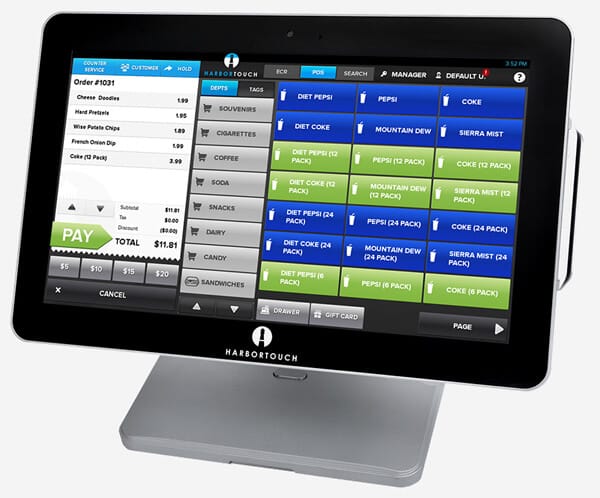
Key Features to Look for in a Retail Point of Sale System
Inventory Management
An excellent retail POS system should have robust inventory management capabilities. Look for features such as real-time inventory tracking, automatic reordering alerts, and barcode scanning. These features will help you keep track of your stock levels, prevent out-of-stock situations, and streamline the ordering and receiving process. Additionally, advanced inventory management features such as product categorization, variants management, and low stock notifications can further enhance your efficiency in managing your inventory.
Sales Reporting and Analytics
Sales reporting and analytics are essential features of a retail POS system. Look for a system that offers comprehensive sales reports, including data on daily, weekly, and monthly sales, top-selling products, and customer purchasing patterns. These reports can provide valuable insights that allow you to make data-driven decisions to improve your sales performance. Advanced analytics features, such as predictive analytics and forecasting, can further help you optimize your inventory, pricing, and marketing strategies.
Customer Relationship Management (CRM)
A retail POS system with built-in customer relationship management (CRM) capabilities can greatly benefit your business. Look for features such as customer profiles, purchase histories, and loyalty program management. With a CRM integrated into your POS system, you can better understand your customers’ preferences, personalize their shopping experiences, and foster customer loyalty. By offering targeted promotions, discounts, and rewards, you can turn one-time shoppers into repeat customers and brand advocates.
Employee Management
Efficient employee management is crucial for the success of your Detroit store, and a retail POS system can help streamline this process. Look for features such as employee time clock tracking, scheduling, and performance monitoring. With these features, you can accurately track employee hours, manage shifts, and evaluate employee performance. Additionally, an integrated POS and employee management system can help you automate payroll processes, saving you time and reducing the risk of human error.
How to Implement a Retail Point of Sale System in Your Detroit Store
Assessing Technology Infrastructure
Before implementing a retail POS system in your Detroit store, assess your current technology infrastructure. Ensure that you have the necessary hardware, such as barcode scanners, receipt printers, and cash registers, to support the POS system. If needed, invest in compatible and reliable hardware that integrates seamlessly with the POS system. Make sure you have a stable internet connection to ensure uninterrupted access to your POS system and its cloud-based features.
Training and Onboarding Staff
Properly training and onboarding your staff is vital to the successful implementation of a retail POS system. Ensure that all employees who will use the system receive comprehensive training on its functionalities and workflows. Schedule dedicated training sessions or consider hiring a trainer to provide personalized guidance. Encourage employees to ask questions and address any concerns they may have. A well-trained staff will be confident and efficient in using the POS system, ensuring a smooth transition and minimizing disruptions to your business operations.
Data Migration and System Setup
If you are transitioning from an existing system to a new retail POS system, data migration is a critical step. Consult with the POS system provider to ensure a seamless data migration process. Transfer essential data such as inventory records, customer information, and sales history to the new system. Properly set up the new POS system according to your business needs, ensuring that all settings and configurations are correctly established. Test the system thoroughly before fully implementing it, checking for any errors or discrepancies.
Test and Evaluate
Once your retail POS system is implemented, it’s important to test and evaluate its performance. Conduct comprehensive tests to verify that all functionalities are working correctly. Perform test transactions, check inventory accuracy, and generate reports to review data accuracy. Encourage feedback from your staff and customers to identify any potential issues or areas for improvement. Regularly evaluate your POS system’s performance to ensure that it is meeting your business needs and goals.
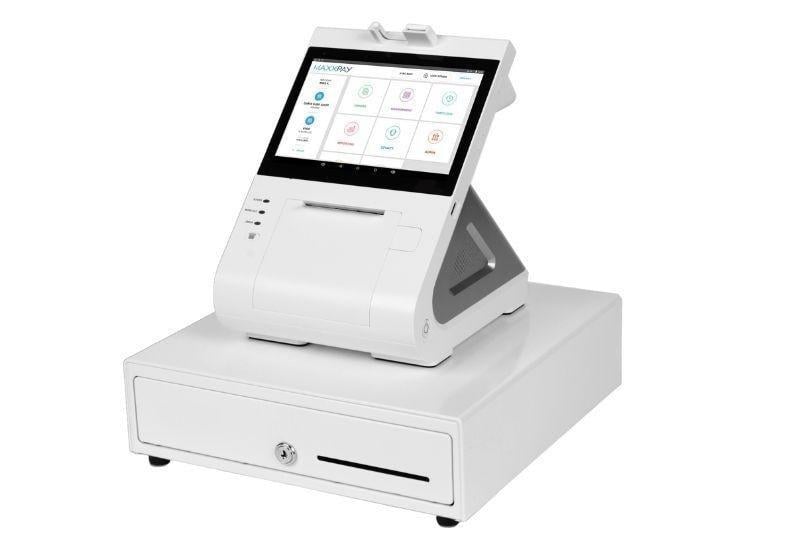
Best Practices for Optimizing Your Retail Point of Sale System
Regularly Update and Maintain Software
To optimize the performance of your retail POS system, it’s important to regularly update and maintain the software. Stay up to date with the latest software releases and install any necessary updates promptly. Software updates often include bug fixes, security patches, and new features that can enhance the functionality of your POS system. Additionally, regularly back up your data to prevent any loss or corruption. By keeping your software updated and maintaining your data, you can ensure the smooth operation of your retail POS system.
Utilize Customization and Configurations
Take full advantage of the customization and configuration options offered by your retail POS system. Tailor the system to suit your specific business needs and workflows. Customize receipt templates, product categorizations, and user roles to align with your branding and requirements. Configure the system to automate repetitive tasks, such as discounts or promotions. By utilizing customization and configurations, you can create a personalized and optimized experience for both your staff and customers.
Implement Secure Payment Processing
Security is paramount when it comes to retail point of sale systems, especially concerning payment processing. Ensure that your retail POS system adheres to industry standards for data security, such as being Payment Card Industry Data Security Standard (PCI DSS) compliant. Partner with a reputable payment processor to ensure secure and encrypted transactions. Train your staff on best practices for handling customer payment information securely. By implementing secure payment processing, you can protect your customers’ sensitive data and safeguard your business reputation.
Integrate with E-commerce Platforms
In today’s digital age, integrating your retail POS system with e-commerce platforms is crucial for expanding your business reach. Look for a POS system that offers seamless integration with popular e-commerce platforms such as Shopify or WooCommerce. By integrating your POS system with your online store, you can synchronize inventory, streamline order fulfillment, and provide a unified shopping experience to your customers. This omnichannel integration can help you maximize sales opportunities and effectively manage both your brick-and-mortar and online operations.
Common Challenges and Solutions for Retail Point of Sale Systems
System Downtime and Technical Issues
One common challenge with retail point of sale systems is system downtime and technical issues. Understand that technology can sometimes encounter unexpected problems, leading to temporary disruptions in your business operations. To mitigate this challenge, ensure that your retail POS system provider offers reliable technical support and troubleshooting services. Consider backup options, such as manual paper-based systems, to keep your business running smoothly during any system downtime. Regularly test your backup processes to ensure their effectiveness and update them as necessary.
Employee Adoption and Resistance
Another challenge when implementing a retail point of sale system is employee adoption and resistance. Some employees may be resistant to change or struggle to adapt to new technology. To address this challenge, involve your staff in the decision-making process when choosing a POS system and emphasize the benefits it will bring to their work. Provide thorough training and support during the implementation phase to help employees familiarize themselves with the system. Encourage open communication and address any concerns promptly. Recognize and reward employees who embrace the new system, motivating others to follow suit.
Integrating Multiple Store Locations
For businesses with multiple store locations, integrating a retail point of sale system can present a challenge. It’s important to choose a POS system that supports multi-store functionality and allows for centralized management of inventory, sales, and customer data across all locations. Ensure that the system provides real-time data synchronization and reporting capabilities. Communicate effectively with your staff at each location about the implementation process and any changes in workflows. Provide training and ongoing support to ensure consistent and efficient operations across all your store locations.
Data Security and Privacy
Data security and privacy are critical considerations when implementing a retail point of sale system. Protecting your customers’ personal and payment information is essential for maintaining trust and complying with legal requirements. Choose a POS system that incorporates robust security measures, such as data encryption and secure access controls. Regularly review and update your security protocols to address any emerging threats. Ensure that your staff is trained on security best practices, such as using strong passwords and avoiding suspicious links or attachments. Conduct routine audits to monitor compliance and address any vulnerabilities promptly.
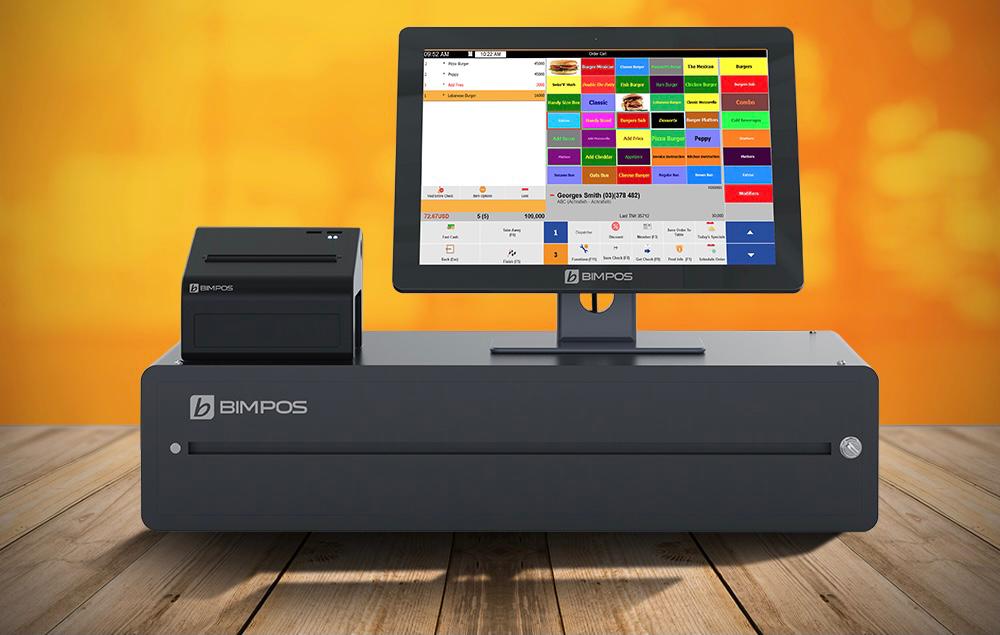
Case studies: Detroit Retailers Thriving with Retail Point of Sale Systems
Case Study 1: ABC Clothing Store
ABC Clothing Store, a popular boutique in Detroit, implemented a retail POS system to streamline their operations and enhance customer experiences. With the POS system’s inventory management features, they were able to accurately track their extensive product inventory, ensuring that popular items were always in stock. The sales reporting and analytics capabilities allowed them to identify their best-selling products and adjust their purchasing strategy accordingly. By leveraging the system’s CRM functionality, they implemented a successful loyalty program that rewarded repeat customers, leading to increased customer retention and sales.
Case Study 2: XYZ Electronics
XYZ Electronics, a technology retailer in Detroit, faced challenges managing their multiple store locations. They chose a retail POS system that offered robust multi-store functionality, allowing them to centralize their inventory management and sales tracking. This integration enabled them to synchronize inventory levels across all locations and quickly fulfill online orders from any store. With real-time reporting and analytics, they were able to identify trends in customer preferences and adjust their product offerings accordingly. This resulted in improved sales performance and higher customer satisfaction.
Case Study 3: DEF Bookstore
DEF Bookstore, a local independent bookstore in Detroit, implemented a retail POS system to enhance their customer experience and streamline their operations. The system’s CRM capabilities enabled them to create personalized customer profiles and offer tailored recommendations based on previous purchases. They utilized the system’s employee management features to optimize their staffing schedules and track employee performance. With the POS system, they were able to efficiently manage their inventory and reduce out-of-stock situations. This led to increased customer loyalty and positive word-of-mouth, contributing to the store’s continued success.
Future Trends in Retail Point of Sale Systems
Mobile POS Solutions
The future of retail point of sale systems is increasingly mobile-oriented. Mobile POS solutions, which utilize smartphones or tablets as payment terminals, offer convenience and flexibility for both customers and retailers. These systems enable retailers to easily accept payments anywhere in their store, eliminating the need for traditional cash registers. Mobile POS solutions also support contactless payment options, enhancing the overall customer experience and promoting faster transaction times.
Artificial Intelligence and Machine Learning
Artificial intelligence (AI) and machine learning (ML) are becoming increasingly prevalent in retail point of sale systems. These technologies can automate various tasks, such as inventory management, sales forecasting, and personalized product recommendations. AI-powered chatbots integrated into POS systems can provide instant customer support and answer frequently asked questions. By leveraging AI and ML capabilities, retailers can optimize their operations, improve decision-making, and enhance the overall shopping experience for customers.
Omnichannel Integration
Omnichannel integration is a future trend that aims to offer a seamless and unified shopping experience across various channels, including brick-and-mortar stores, online platforms, and mobile commerce. Retail point of sale systems that support omnichannel integration allow retailers to synchronize inventory, facilitate omnichannel returns and exchanges, and provide consistent pricing and promotions across all channels. This integration enables customers to shop and interact with the brand through their preferred channels, fostering customer loyalty and maximizing sales opportunities.
Contactless Payment Options
As consumers increasingly embrace contactless payment options, retail point of sale systems will continue to offer and expand these capabilities. Contactless payment methods, such as mobile wallets and card tap-and-go, provide convenience, speed, and enhanced security for both customers and retailers. Retailers can provide a seamless contactless payment experience by integrating their POS systems with the latest payment technologies. This trend aligns with the growing preference for minimal physical contact and reflects the evolving payment preferences of consumers.
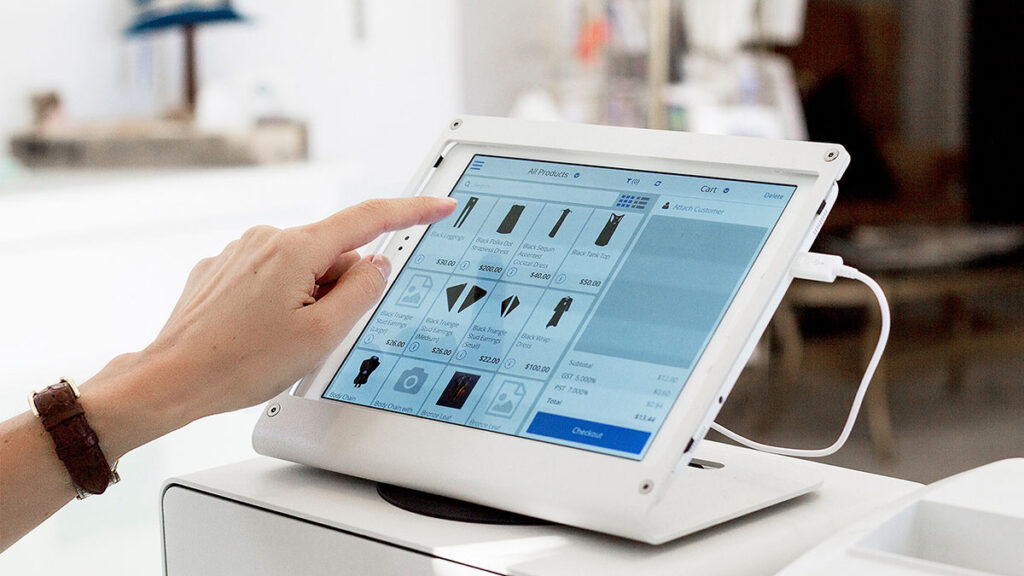
Conclusion
A retail point of sale system offers numerous benefits and opportunities to optimize your Detroit store’s operations and enhance the overall customer experience. From increased efficiency and productivity to streamlined inventory management and sales tracking, a well-chosen POS system can revolutionize your business. By carefully assessing your business needs, considering ease of use and integration capabilities, and analyzing cost and pricing, you can choose the right POS system for your store.
Look for key features such as inventory management, sales reporting and analytics, CRM functionalities, and employee management capabilities to maximize the potential of your retail POS system. Implementing the system requires assessing your technology infrastructure, training and onboarding staff, migrating data, and thoroughly testing the system. By following best practices such as regularly updating and maintaining software, utilizing customization and configurations, implementing secure payment processing, and integrating with e-commerce platforms, you can optimize your retail POS system for peak performance.
While challenges may arise, such as system downtime, employee adoption, integrating multiple store locations, and data security, there are solutions available to overcome these obstacles. Learning from case studies of successful Detroit retailers who have implemented retail POS systems can inspire and guide your own journey. Lastly, staying updated with future trends in retail point of sale systems, such as mobile POS solutions, artificial intelligence and machine learning, omnichannel integration, and contactless payment options, will ensure that your business remains competitive in the evolving retail landscape.
With the right retail point of sale system, you can transform your Detroit store into a thriving and efficient business that provides exceptional customer experiences and drives sustainable growth. Embrace the power of technology and make the most of the opportunities it offers to optimize your retail operations today.


